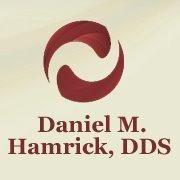
If a tooth’s decay or infection has become problematic enough to rule out other options, your dentist may recommend extraction. Tooth extractions prevent decay and abscesses from spreading to other teeth, gums, or throughout your body, and caring for the site after the procedure is essential to a speedy and comfortable recovery. Below are four actions you should and shouldn’t take after your dentist performs this procedure.
Do:
Take medications as prescribed.
Your dental office may prescribe medications for you to take after the procedure. If you’re at high risk for infection or the tooth has been chronically infected, they may prescribe antibiotics for you to take to prevent infection during healing. Pain relievers may also be prescribed, especially if you’re nervous about experiencing discomfort. If your dentist plans to use anesthesia during the procedure, be sure to arrange a ride to the pharmacy to pick up your prescriptions, as you might be unable to drive.
Keep your mouth clean.
 Your dentist will give you specific instructions for cleaning your teeth after the procedure. Though you don’t want to disturb the blood clot that protects your tooth’s socket after removal, you should still maintain your oral hygiene routine to prevent infection. Leave the site alone for the first 12 hours, then use saline and/or antibacterial rinses for the next 48 hours. Then you’ll be able to brush as long as you’re careful with the extraction site.
Your dentist will give you specific instructions for cleaning your teeth after the procedure. Though you don’t want to disturb the blood clot that protects your tooth’s socket after removal, you should still maintain your oral hygiene routine to prevent infection. Leave the site alone for the first 12 hours, then use saline and/or antibacterial rinses for the next 48 hours. Then you’ll be able to brush as long as you’re careful with the extraction site.
Don’t:
Eat hard foods.
To avoid disturbing the site and getting food particles lodged in it, you’ll need to stick to liquid and soft foods for a day after your procedure. Yogurt, mashed potatoes, smoothies made of seedless fruits and vegetables, and cream soups without food particles are just a few of the options open to you. If you aren’t sure what you can and can’t eat, ask your dental provider for recommendations.
Do vigorous activity.
For the first few days after the procedure, you should get plenty of rest. Plan to avoid strenuous activities for about a week after the extraction as well. Vigorous activity will elevate your heart rate, which can cause spikes in your blood pressure. This will dislodge the protective clot, which may lead to a toothache or dry socket. You’ll be able to complete minor tasks within a few days after the procedure, but speak with your dental provider to get specific instructions for your unique case.
Since 1981, skilled dentist Daniel M. Hamrick, DDS in China Grove, NC, has provided advanced dental care for patients of all ages, including extractions. Whether your toothache is caused by a cavity or a crack, their comprehensive services will be able to remedy it. Dental crowns, fillings, bridges, bonding, and implants are a few of the procedures they perform, and Dr. Hamrick will come in after hours for emergency cases. Learn more about their procedures online and call (704) 857-7497 to schedule a consultation or checkup.
About the Business
Have a question? Ask the experts!
Send your question

